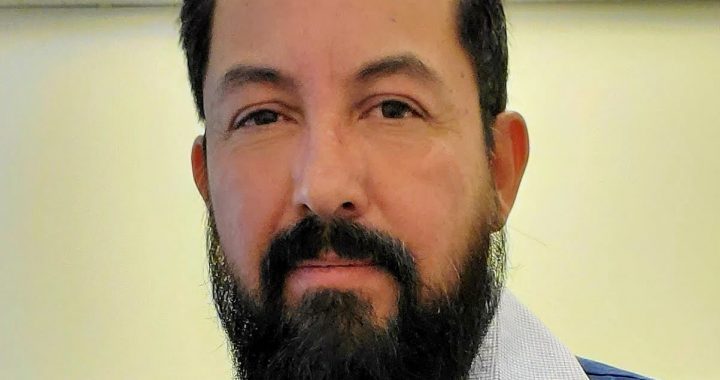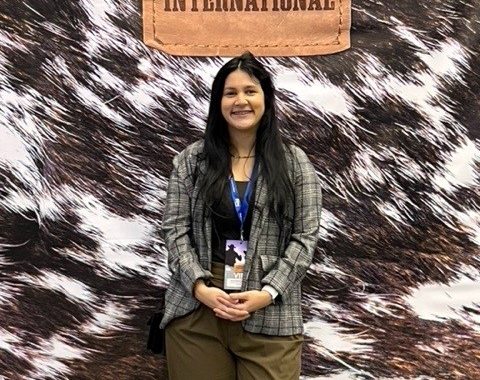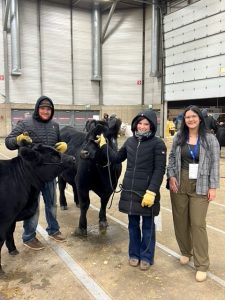These days, former Gentecer Cameron Olson is a Production Consultant on the Feeds and Feeding team at Feedlot Health Management Services.
“We help feedlot clients from Alberta to Ontario, from Idaho to the Texas panhandle and Mexico with their diet formulations,” he says. “We do commodity analysis and we offer animal health, management, and performance consulting.”
Cameron is based in Okotoks, working with southern Alberta producers in “Feedlot Alley” but other team members work with feedlots in Saskatchewan and… southern Ontario. Beef cattle in chardonnay country? Really?
“Southern Ontario is the second-largest cattle-feeding area in Canada after Southern Alberta and Saskatchewan” confirms Cameron. “But it’s a completely different environment than Alberta. Typically, the cattle are in barns with access to the outside because the ground moisture level is different. In Western Canada, no barns. And in Ontario, corn is a primary ingredient in the ration instead of barley. So we’re dealing with different management techniques depending on where the cattle are, what commodities are available, and so on.”
Cameron didn’t just walk into this perfect job after his PhD. Well, he did… but the story is a bit longer. The relationship with Feedlot Health started in 2015 with an internship while he was home between his BSc and his Master’s at Texas A&M. He was looking around for a summer job. The connection was totally serendipitous. For that internship, Cameron was on the Feeds and Feeding team, collecting samples at feedlots and collecting dry matter data from the drying ovens. In 2017, after his Master’s, he did another internship. This time, he was responsible for the on-site administration of a feeding trial in southern Alberta. The third iteration of the relationship came as a result of being selected as a Canadian Cattle Young Leader in 2019 while he was doing his PhD.
“My old boss at Feedlot Health, Matt May, was my mentor,” explains Cameron. “We worked together through the Young Leader program and, a year into that relationship, he offered me a part-time position on the Feeds and Feeding team with the goal of onboarding me in a full-time job. So it was a company I was familiar with, and a position I was familiar with that was offered to me because I was at the right place at the right time with the right kind of knowledge.”
That’s because Feedlot Health is expanding. Telus Agriculture, which bought Feedlot Health and Herdtrax (a long-time Gentec collaborator), plans to roll out services for the cow/calf sector in 2023. And that ties into Cameron’s PhD work on cow reproductive efficiency, dry matter intake and RFI in developing heifers and mature cows.
“Gentec is one of the very few organizations that does what it does,” he says. “It has concentrated a lot of knowledge in a tight organization that has like-minded partners. For students looking to enter the livestock industry in Canada and for a robust place to study, partnering with Gentec will allow them to gain real-world knowledge of how the industry functions here. For producers, the concentrated knowledge and research support becomes tangible results that benefit the producer directly.”
But Cameron acknowledges that persuading producers to pay for services that he knows can help but that don’t necessarily provide a product is a challenge.
“We can help them manage their herds more effectively and with more insight,” he says. “The Feedlot Health model promotes research and understanding so we hope to do the larger-scale research that we’ve done in the feedlot sector in the cow-calf sector as well to demonstrate that.”




